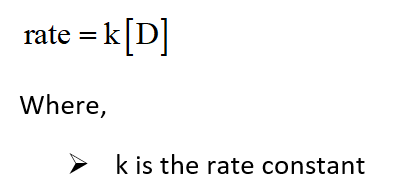Ionic Equilibrium
Chemical equilibrium and ionic equilibrium are two major concepts in chemistry. Ionic equilibrium deals with the equilibrium involved in an ionization process while chemical equilibrium deals with the equilibrium during a chemical change. Ionic equilibrium is established between the ions and unionized species in a system. Understanding the concept of ionic equilibrium is very important to answer the questions related to certain chemical reactions in chemistry.
Arrhenius Acid
Arrhenius acid act as a good electrolyte as it dissociates to its respective ions in the aqueous solutions. Keeping it similar to the general acid properties, Arrhenius acid also neutralizes bases and turns litmus paper into red.
Bronsted Lowry Base In Inorganic Chemistry
Bronsted-Lowry base in inorganic chemistry is any chemical substance that can accept a proton from the other chemical substance it is reacting with.
Hi, what is the correct answer to this question?

In the second-order reaction, the length of the sequential half-life is increased as the concentration decreased whereas as in the zero-order, the length of the sequential half-life is decreased as the concentration decreased.
The equation for the general reaction is shown below:

The half-life duration for the above reaction will be 42 hours. The time span of the second half-life of the given reaction from the initiation of the reaction will be 84 hours. Thus, the length of the second half-life will be 42 hours. Therefore, the length of the successive half-life is remain constant as the reaction is progressed. Hence, the reaction will be first order reaction. Therefore, the third half-life duration will be 42 hours.
The rate law expression for the above equation is shown below:

In the above equation, the rate is equivalent to the reactant concentration. As the concentration will be doubled then the initial rate for the given general reaction must be doubled.
Therefore, the correct option is the option (C).
Step by step
Solved in 3 steps with 2 images









